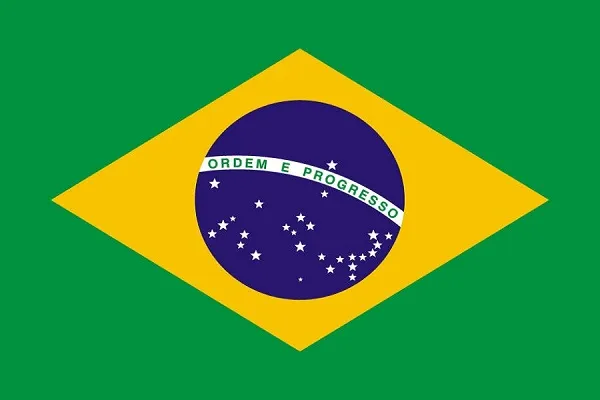The Ministry of Environment and Climate Change (MMA) held debates from May 6 to 9 under the theme: “Climate emergency and the challenge of ecological transformation.”
The last national conference took place eleven years ago. According to the Ministry, this edition marked the return of participatory governance. The event was held at the Centro Internacional de Convenções do Brasil (CICB) and brought together around 3,000 representatives from all Brazilian states and the Federal District, including government authorities, third-sector organizations, and 2,570 municipalities mobilized for thematic debates and local presentations.
This Conference was the result of a broad participatory process, involving:
- 2,570 municipalities across all states,
- 439 municipal conferences,
- 179 inter-municipal conferences,
- and 287 free conferences.
During the 5th CNMA, 1,501 delegates evaluated proposals received from across the country and selected the top 100 proposals—20 for each thematic axis:
- Mitigation,
- Adaptation and Disaster Preparedness,
- Ecological Transformation,
- Climate Justice,
- and Governance and Environmental Education.
These proposals will support the implementation of the National Policy on Climate Change (PNMC) and reflect society’s preferences for limiting global warming to 1.5ºC above pre-industrial levels, in line with the Paris Agreement. The conference was also a key moment for social mobilization ahead of COP30.
According to the MMA, the 5th CNMA is a crucial moment of social mobilization for COP30, the UN conference to be held in Belém, Pará, in November, aiming to confront climate change at the global level. The Brazilian government has launched a “real task force” to ensure that COP30 is not merely promotional, but a historical benchmark COP.
Summary of the Four Days
The State and Federal District Environmental Conferences analyzed the initial phase suggestions and prioritized 539 proposals (up to 20 per state). Delegates were also elected to participate in the national phase.
The final plenary, held on Thursday (May 8), presented the selected 100 final proposals, divided across five thematic areas: Mitigation, Adaptation and Disaster Preparedness, Climate Justice, Ecological Transformation, and Governance and Environmental Education—20 proposals per area. A total of 50 discussion groups worked in parallel to consolidate these proposals.
🔗 Full list of prioritized proposals:
https://www.gov.br/mma/pt-br/noticias/propostas-priorizadas-pelos-eixos-para-a-plenaria-de-encerramento.pdf
The event also addressed topics such as energy transition, regulatory frameworks, and ongoing efforts to reduce fire occurrences in the country.
The MMA emphasized that:
“It’s not enough to triple renewable energy or double energy efficiency. We must transition away from fossil fuels. This isn’t magic—it requires investment, science, technology, and persistence.”
They advocate for a just and planned transition, both to end deforestation and eliminate fossil fuel use—rather than regret missed opportunities later.
The Ecological Transformation Plan (PTE) was also discussed. It was officially launched by the Ministry of Finance during COP28 in Dubai.
According to the Ministry of Finance, if properly implemented, the PTE could generate:
- R$396 billion in positive impact for Brazil’s economy by 2030,
- 3% GDP growth by 2026,
- and up to R$772 billion in economic impact by 2050.
The strategy centers on technological innovation and responsible natural resource use.
Scientist warns about risks of climate change in Brazilian biomes
A scientist at the event warned of the critical condition of Brazil’s main biomes. According to him:
- If Amazon deforestation reaches 20–25%, and global temperature exceeds 2°C, up to 70% of the rainforest could be lost, becoming a degraded savanna.
- The Cerrado, Pantanal, and Caatinga are also in precarious states, nearing their resilience thresholds, with visible changes in climate and landscape.
To avoid collapse, he called for urgent action:
- Zero deforestation,
- Biome restoration,
- Nature-based urban transformation,
- Climate disaster education for new generations.
“The speed of climate change demands deep and immediate transformation. We must eliminate deforestation and accelerate restoration, or we face collapse.”
🔗 Source:
Other News This Week
Senate begins debate on Environmental Licensing Framework; MMA warns of risks
On Wednesday (May 7), the Senate Environment Committee (CMA) began debating the General Law on Environmental Licensing, with a vote expected by May 23.
The proposal is under joint review by the Agriculture Committee (CRA) and the Environment Committee (CMA). The text already includes over 90 amendments and aims to balance environmental preservation with production, while streamlining licensing procedures.
However, the MMA considers the proposal dangerous. It believes it weakens environmental protections and contradicts Law 6.938/1981, which governs the National Environmental Policy (PNMA). This law is designed to:
- Ensure the sustainable and secure use of natural resources,
- Protect ecosystems,
- Maintain constant environmental oversight.
The Ministry is working internally and in dialogue with Congress to reverse what it calls “deconstructive” measures. It views the proposed framework as a serious setback that could dismantle Brazil’s licensing processes.
🔗 Source:
Chamber debates solar power dispute between distributors and generators
At a public hearing in the Chamber of Deputies on Tuesday (May 6), representatives from Brazil’s electricity sector clashed over the impact of reverse flow caused by consumer-generated energy.
Distributors argue that reverse flow threatens grid stability and safety, as current infrastructure (like transformers and protection systems) wasn’t designed to handle this volume.
Traditionally, electricity flows from substations through distribution networks to end users. However, solar energy generated by consumers now gets injected back into the grid, creating a reverse flow.
According to the National Electric Energy Agency (Aneel), there are eight new grid connections per minute in Brazil.
The Brazilian Association of Electricity Distributors says the issue is technical, not market-related. But the Brazilian Solar Photovoltaic Energy Association counters that distributors use this argument to block solar panel access and violate the right to connect to the grid, even after the approval of Law 14.300/22, which regulates distributed generation.
🔗 Source:








